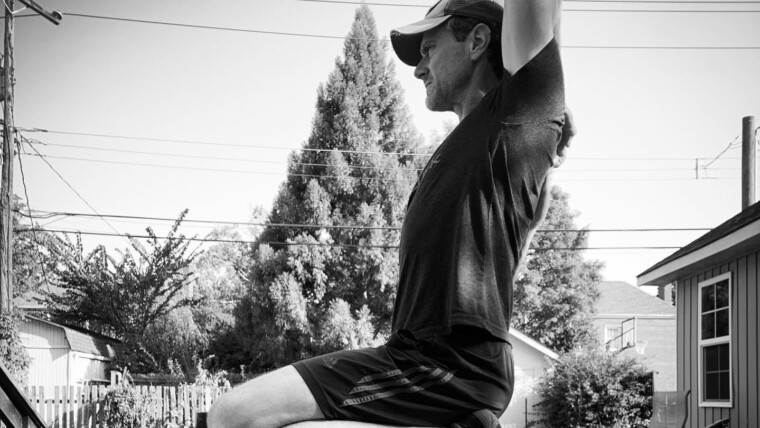Over the weekend I rucked 10 miles with a buddy. We each carried 30-pounds in our rucks plus an additional 40-pound sandbag and 40-pound watercan. We were doing this as part of the Monthly Rucking Challenge for April.
This ruck wrecked me.
Which got me thinking about easy and effective ways to help your body recover from a long, heavy, ruck.
In this post, we’ll cover what you can do to maximize recovery after each ruck.
Hydration
Believe it or not, hydration plays a big role in your recovery. And, I’m not just talking about hydration during your ruck.
Hydration for your recovery starts before your ruck. In fact, daily hydration is something you should always be thinking about. While the number varies, doctors generally recommend somewhere around a half gallon of water a day, though your particular needs may be different.
If you’re not getting that on a regular basis, you’re already behind the curve.
Of course, bring water with you on your ruck. Usually, 2-3 liter water bladder should be good (Here are the ones we like). Drink when thirsty and maybe take in a little extra if the temps are hot and you’re sweating a lot. If you empty the water, be sure to find more and fill up.
Of course, don’t neglect those electrolytes either? We wrote a whole article about the importance of electrolyte replenishment while rucking.
After the ruck, don’t stop drinking. When you drink water your blood circulation cleans out waste products in your muscles, assisting in recovery.

Now, I know what you’re thinking. What about the post-ruck beer?
Here’s a simple tip: drink a glass of water for each beer you drink.
Stretching
After a ruck your muscles are sore. They’re tense and there are a lot of waste products left over from the intense activity. Another strategy, next to hydration, is to stretch.
Stretch your legs, back, and chest muscles to relax them and to allow blood to flow through freely.
If you’re with a group, stretch together before heading out for that beer we just mentioned.
Hold each position for at least 30 seconds. Make sure you feel a slight stretch all the time, but nothing sharp and don’t attempt to set a stretching record.
In addition to stretching after your ruck, find time that evening and the next morning to stretch some more, focusing on areas that are extra tight.
Want to dive a little deeper into what stretching you need before and after a ruck? Here’s a article to help you out.
Sleeping
This is the most effective recovery strategy there is. There’s nothing as amazing as good night sleep. Get between 7 and 9 hours so your body can do the work.
While you’re in a dream state your body regenerates damaged tissues. It also re-arms your immune system and it lowers your blood pressure.
In the days after a hard ruck, make sure you’re getting enough sleep. It will go a long way in speeding up your recovery. In this article we take a deep dive into the impact of sleep on rucking.
Nutrition
Burgers are awesome, still, there are other foods that improve your recovery even better. Great foods for regeneration include:
Whole grains (oats, whole grain rice, quinoa)
Whole grain pasta
Leafy greens (spinach, collard greens, kale)
Legumes (beans, chickpeas, lentils)
Fruits (berries, oranges, avocado)
Colorful vegetables (carrots, squash, beetroots)
Conclusion
Hydration, stretching, sleep, and nutrition are four simple way to help you recover from a long and heavy ruck. While there are plenty of other things you can do, none are a simple as these four recovery tips.
After your next ruck, give them a try and let us know if they help.







